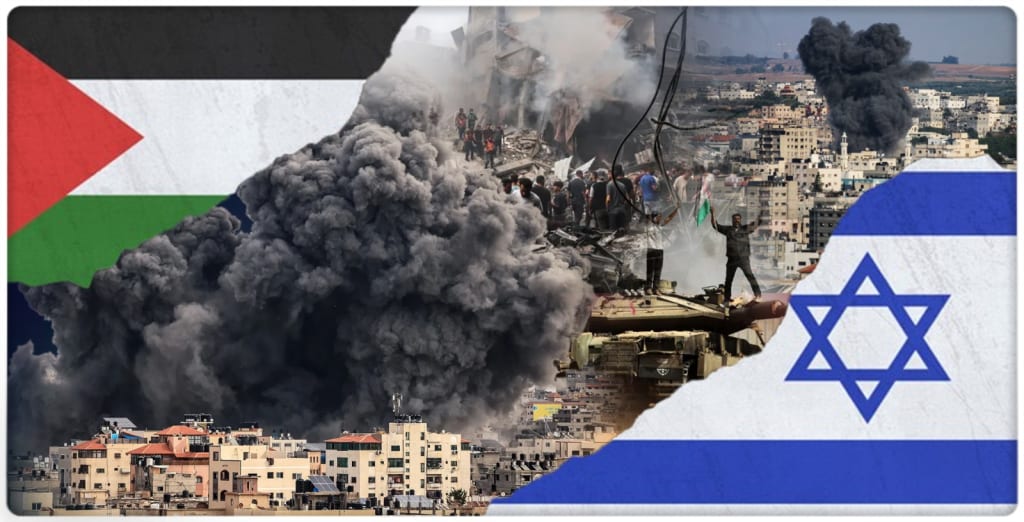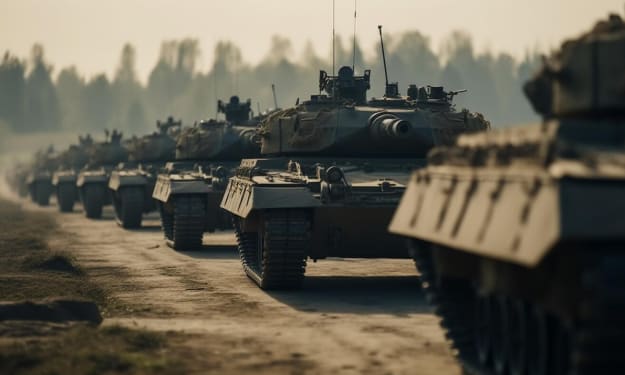Conflict: Israel and Palestine.
The root cause of the conflict between Israel and Palestine.

The conflict between Israel and Palestine is a complex and multifaceted issue that has deep historical, political, and religious roots. It is important to note that the conflict has evolved over time and has been shaped by various factors, including territorial disputes, national aspirations, security concerns, and competing narratives.
Historical Background:
The origins of the Israeli-Palestinian conflict can be traced back to the late 19th century when Zionist Jews began immigrating to Palestine with the aim of establishing a Jewish homeland. This movement gained momentum in the early 20th century, particularly after the Balfour Declaration of 1917, in which Britain expressed support for the establishment of a "national home for the Jewish people" in Palestine.
However, this Zionist project clashed with the aspirations of the Arab population already living in Palestine. The Arab population feared that their rights and land would be compromised by the influx of Jewish immigrants. Tensions escalated further with the United Nations' partition plan in 1947, which proposed dividing Palestine into separate Jewish and Arab states. The plan was accepted by Jewish leaders but rejected by Arab leaders, leading to violence and ultimately the 1948 Arab-Israeli war.
Territorial Disputes:
One of the core issues fueling the conflict is the question of land and borders. Both Israelis and Palestinians claim historical and religious ties to the same territory, particularly Jerusalem. The competing claims over land have resulted in ongoing disputes over settlements, borders, and control of key areas.
Israel captured East Jerusalem, including the Old City, during the 1967 Six-Day War and subsequently annexed it. However, Palestinians consider East Jerusalem as their future capital and view Israeli control as an occupation. The status of Jerusalem remains one of the most contentious issues in peace negotiations.
Another major territorial dispute revolves around Israeli settlements in the West Bank. Israel has constructed settlements in this area since its occupation in 1967, which has been a source of contention as Palestinians view them as illegal under international law and an obstacle to the establishment of a viable Palestinian state.
Security Concerns:
Security concerns play a significant role in the Israeli-Palestinian conflict. Israel has faced numerous security threats, including armed attacks, suicide bombings, and rocket fire from Palestinian territories. These security concerns have led Israel to implement measures such as checkpoints, barriers, and military operations to protect its citizens.
On the other hand, Palestinians argue that Israeli security measures, such as the separation barrier and restrictions on movement, infringe upon their rights and exacerbate their economic and social hardships. The cycle of violence and counter-violence perpetuates a climate of fear and mistrust between the two sides.
Competing Narratives:
The Israeli-Palestinian conflict is also deeply rooted in competing national narratives and historical interpretations. Both Israelis and Palestinians have distinct narratives that shape their identity, collective memory, and perception of the conflict.
For Israelis, the establishment of the State of Israel in 1948 represents a fulfillment of their national aspirations and a response to centuries of persecution endured by Jews. They view themselves as victims of Arab aggression and argue that they have a right to self-determination and security within recognized borders.
Palestinians, on the other hand, see themselves as the indigenous population of Palestine who have been dispossessed and subjected to occupation. They assert their right to self-determination and statehood based on international law and UN resolutions. Palestinians also emphasize the importance of addressing issues such as refugees' right of return and compensation for lost land.
International Involvement:
The Israeli-Palestinian conflict has garnered significant international attention and involvement over the years. Various peace initiatives, negotiations, and mediation efforts have been undertaken by regional actors, international organizations, and world powers to find a resolution to the conflict.
Notable examples include the Oslo Accords in the 1990s, which aimed to establish a framework for peace negotiations, and the Camp David Summit in 2000, which sought to address the core issues of the conflict. However, these efforts have faced significant challenges and have not yet resulted in a comprehensive and lasting resolution.
Conclusion:
The Israeli-Palestinian conflict is a deeply entrenched and complex issue that encompasses historical, territorial, security, and narrative dimensions. The quest for a just and lasting solution continues to be a major challenge for both Israelis and Palestinians, as well as the international community.
*Top 3 Authoritative Reference Publications or Domain Names Used:*
1. United Nations (www.un.org)
2. Council on Foreign Relations (www.cfr.org)
3. BBC News (www.bbc.com)
About the Creator
Prince Ansu
Its all about providing our readers with the best informative and educative contents to further enhance their knowlage over things happening around the globe. Our main goal is to contribte to our readers personal growth and developments.
Reader insights
Outstanding
Excellent work. Looking forward to reading more!
Top insights
Easy to read and follow
Well-structured & engaging content
Excellent storytelling
Original narrative & well developed characters
Heartfelt and relatable
The story invoked strong personal emotions
Masterful proofreading
Zero grammar & spelling mistakes






Comments
There are no comments for this story
Be the first to respond and start the conversation.